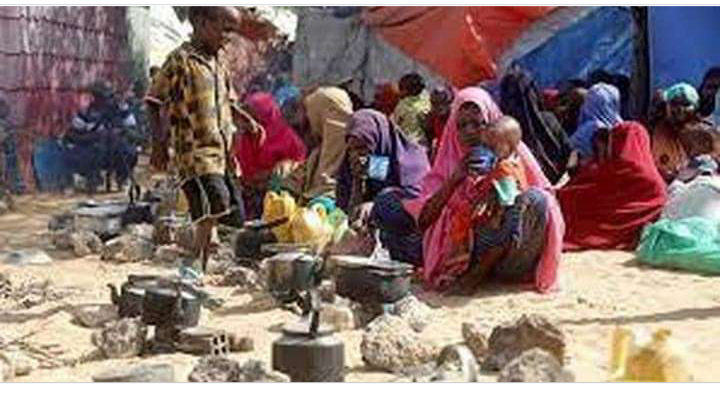
The United Nation has warned that, Somalia is on the brink of famine as an estimated 8 million people are at risk of starvation.
An an unnamed source noted that, US counter terrorism laws is partly to blame
Following a four year drought in Somalia the United Nations has warned that the country could face a very devastating hunger crises.
According to the United Nations, droughts have devastated Somalian livestock for four years, a staple source of food for the Somalian nationals. As a result the nation is on the verge of a full on famine.
Africa’s regional representative for the Food and Agricultural Organization of the United Nations (FAO), Abebe Haile-Gabriel, said, “The situation in Somalia like I said has been very dire. There has been drought for more than four years in a row and this has divesting impact on the livelihood of the people of Somalia.
The UN’s report noted that almost eight million people face extreme hunger in Somalia and more than 213,000 are at “imminent risk of dying.”
To aid this nation the UN had pledged to raise a fund of $1.46 billion, 70% of which has been actualized. However, this fund has not gotten to Somalians in need due to US counterterror legislation.
This information was relayed by a representative who wished to remain anonymous, but in response, the US disclosed that it recognizes Somalia’s “grave humanitarian situation” and insists counterterrorism designations are not intended to target aid efforts.
US government aid agency US Aid – which provides a large portion of Somalia’s aid funds – said Washington had been working with the UN since 2011 to ensure sanctions did not undermine aid work.
The famine Somalia is currently facing has not been experienced by the Nation in a little over a decade. 11 years ago, a similar famine ravaged the country which caused the lives of over 260,000 people in al-Shabab regions alone.
While the UN warns that the country is at the brink of starvation, the World Health Organization noted that people in the country are already starving at this moment as humanitarian aid could not keep up with the growing demand for food.
















